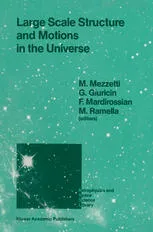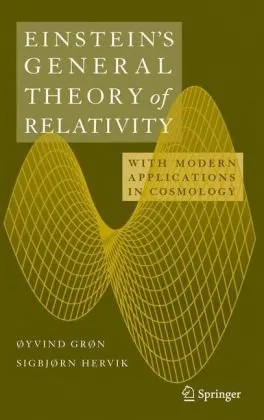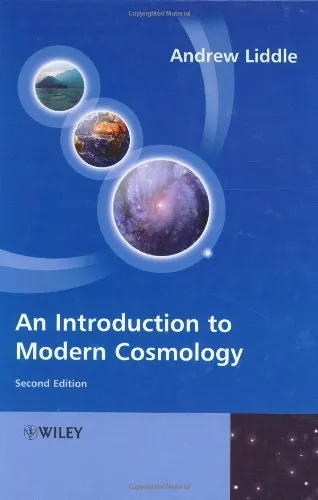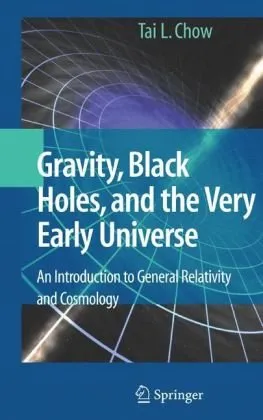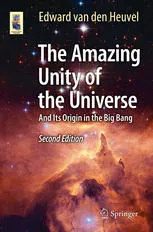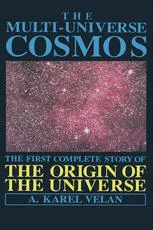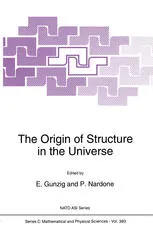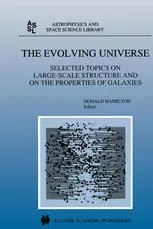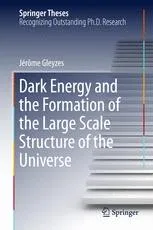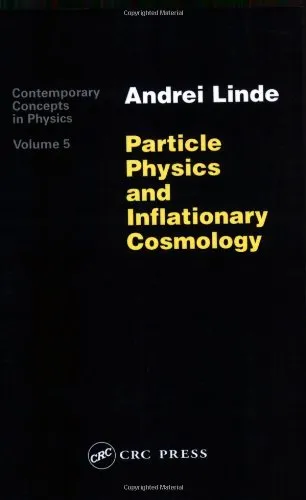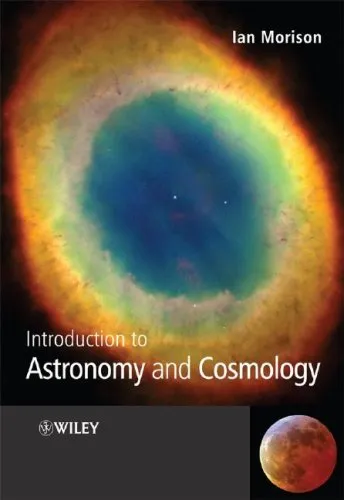Large Scale Structure and Motions in the Universe: Proceeding of an International Meeting Held in Trieste, Italy, April 6–9, 1988
5.0
بر اساس نظر کاربران

شما میتونید سوالاتتون در باره کتاب رو از هوش مصنوعیش بعد از ورود بپرسید
هر دانلود یا پرسش از هوش مصنوعی 2 امتیاز لازم دارد، برای بدست آوردن امتیاز رایگان، به صفحه ی راهنمای امتیازات سر بزنید و یک سری کار ارزشمند انجام بدینکتاب های مرتبط:
خلاصهای از کتاب
کتاب "Large Scale Structure and Motions in the Universe" مجموعهای از مقالات و یافتههای ارائه شده در یک جلسه بینالمللی است که در تریسته، ایتالیا در آوریل ۱۹۸۸ برگزار شده است. این کتاب نتیجهی همکاری چندین محقق برجسته در زمینه کیهانشناسی است و تمرکز اصلی آن بر روی ساختارهای بزرگ مقیاس و حرکتهای درون کیهان قرار دارد.
این کتاب به بررسی و تحلیل ساختارهای بزرگ مقیاس در جهان، از جمله خوشههای کهکشانی و فیلامنتها، میپردازد. همچنین، به نحوه توزیع ماده در کیهان و تأثیر آن بر روی حرکات کهکشانی و دینامیک ماده تاریک توجه ویژهای دارد.
نکات کلیدی
- تأثیرات ماده تاریک بر روی ساختار بزرگ مقیاس کهکشانها.
- افزایش درک ما از نحوه تشکیل و تکامل خوشههای کهکشانی.
- توزیع و حرکت کهکشانها به عنوان ابزاری برای مطالعه هندسه و دینامیک جهان.
- تکنیکهای مختلف برای نقشهبرداری ساختارهای کهکشانی.
نقلقولهای معروف از کتاب
«جهان بزرگتر و پیچیدهتر از آن است که تصور میکردیم، و ما همواره در حال کشف ساز و کارهای جدیدی هستیم که بر توسعه کیهان تأثیر میگذارند.»
«هر نقشهای از جهان تنها بازتابی از پیشرفتهای فعلی دانش بشر درباره کیهان است.»
چرا این کتاب مهم است؟
اهمیت این کتاب از آن جهت است که نمایانگر یک نقطه عطف مهم در مطالعه کیهانشناسی و درک ساختار جهان است. این کتاب نه تنها یافتههای جدید علمی را به اشتراک میگذارد، بلکه رویکردهای جدیدی را برای مطالعه کیهان معرفی میکند.
در زمانی که فهم ما از کیهان در حال ترقی بود، این کتاب توانست ساختارهای پیچیده کهکشانی را با جزئیات بیشتری معرفی کند و به سوالات اساسی درباره چگونگی شکلگیری جهان پاسخ دهد. همچنین، این کتاب به عنوان مرجعی اساسی برای محققان و دانشجویان حوزههای فیزیک و کیهانشناسی عمل میکند که علاقهمند به مطالعه و پژوهش در مورد ساختارهای بزرگ مقیاس و حرکتهای کهکشانی هستند.
Introduction to 'Large Scale Structure and Motions in the Universe'
"Large Scale Structure and Motions in the Universe: Proceeding of an International Meeting Held in Trieste, Italy, April 6–9, 1988," edited by Margaret J. Geller and John P. Huchra, is a crucial piece of literature reflecting the significance of astronomical research from the late 20th century. This book compiles insights from leading scientists who convened to discuss and explore the intricacies of cosmic structures on a grand scale. The discussions and findings from this meeting are not just academic but are also central to our understanding of the universe's architecture and dynamics.
Detailed Summary
The book is a series of papers and presentations that delve into the cosmic tapestry of the universe, examining the large-scale structures such as superclusters, voids, and galaxy filaments. During the four-day meeting in Trieste, the world's foremost cosmologists and astronomers presented their findings and theories, sparking debates that have accelerated advancements in cosmology. Contributions include a deep dive into the physics governing galaxy formation and behavior, new methodologies for mapping out the universe using redshift surveys, and analyses of peculiar velocities of galaxies and their implications on cosmic motion.
Each section of the book captures a different aspect of large-scale cosmic phenomena. Topics such as the distribution of mass in the universe, the role of dark matter in structuring galaxies, and groundbreaking theories regarding the origins and future of cosmic expansion are all addressed. The proceedings encapsulate a pivotal moment in astrophysical research, documenting breakthroughs and setting the stage for future explorations of cosmological structures.
Key Takeaways
- The universe is composed of a network of large-scale structures that are integral to understanding cosmic evolution and dynamics.
- Modern redshift surveys have enhanced our ability to map these vast structures, paving the way for new discoveries about galaxy distributions.
- Dark matter plays an essential role in cosmic structures, influencing the formation and motion of galaxies and intergalactic matter.
- Understanding peculiar velocities of galaxies provides significant insights into the gravitational forces shaping the universe.
- Collaborative scientific efforts and debates are key drivers for advancements in our understanding of the universe.
Famous Quotes from the Book
"The study of large-scale structures not only illuminates the universe's form and flow but challenges us to ponder our own place amidst these vast scales of time and space."
"The cosmos is an intricate and dynamic construct of staggering scope, inviting continual discovery and insight."
Why This Book Matters
This book is a treasure trove for both professional astronomers and enthusiasts eager to understand the framework that forms the backbone of modern cosmology. It serves as a historical document capturing the state of cosmology at a critical juncture when technology and theory were coalescing to pave the way for contemporary astrophysical research. By examining these proceedings, readers gain invaluable insights into how the scientific community approaches cosmic conundrums and collaboratively formulates hypotheses to broaden our grasp of the universe.
Furthermore, the book is not only a reflection of past scientific endeavors but also a beacon guiding current and future research, providing essential context and a robust foundation for newer theories and technologies. Its discussions on the roles of dark matter, the layout of galaxy clusters, and velocity fields continue to influence the work of cosmologists and astronomers in unraveling the universe's deepest mysteries.
دانلود رایگان مستقیم
شما میتونید سوالاتتون در باره کتاب رو از هوش مصنوعیش بعد از ورود بپرسید
دسترسی به کتابها از طریق پلتفرمهای قانونی و کتابخانههای عمومی نه تنها از حقوق نویسندگان و ناشران حمایت میکند، بلکه به پایداری فرهنگ کتابخوانی نیز کمک میرساند. پیش از دانلود، لحظهای به بررسی این گزینهها فکر کنید.
این کتاب رو در پلتفرم های دیگه ببینید
WorldCat به شما کمک میکنه تا کتاب ها رو در کتابخانه های سراسر دنیا پیدا کنید
امتیازها، نظرات تخصصی و صحبت ها درباره کتاب را در Goodreads ببینید
کتابهای کمیاب یا دست دوم را در AbeBooks پیدا کنید و بخرید
1217
بازدید5.0
امتیاز0
نظر98%
رضایتنظرات:
5.0
بر اساس 0 نظر کاربران
Questions & Answers
Ask questions about this book or help others by answering
No questions yet. Be the first to ask!
